Last years Central Asian countries and Russia are witnessing the first serious consequences of the approaching climate crisis — glaciers melting, massive forest fires, severe rains and more.
Our friends in Tajikistan, Kyrgyzstan, Kazakhstan and Russia have started to Connect the Dots between the global change and peoples lives.
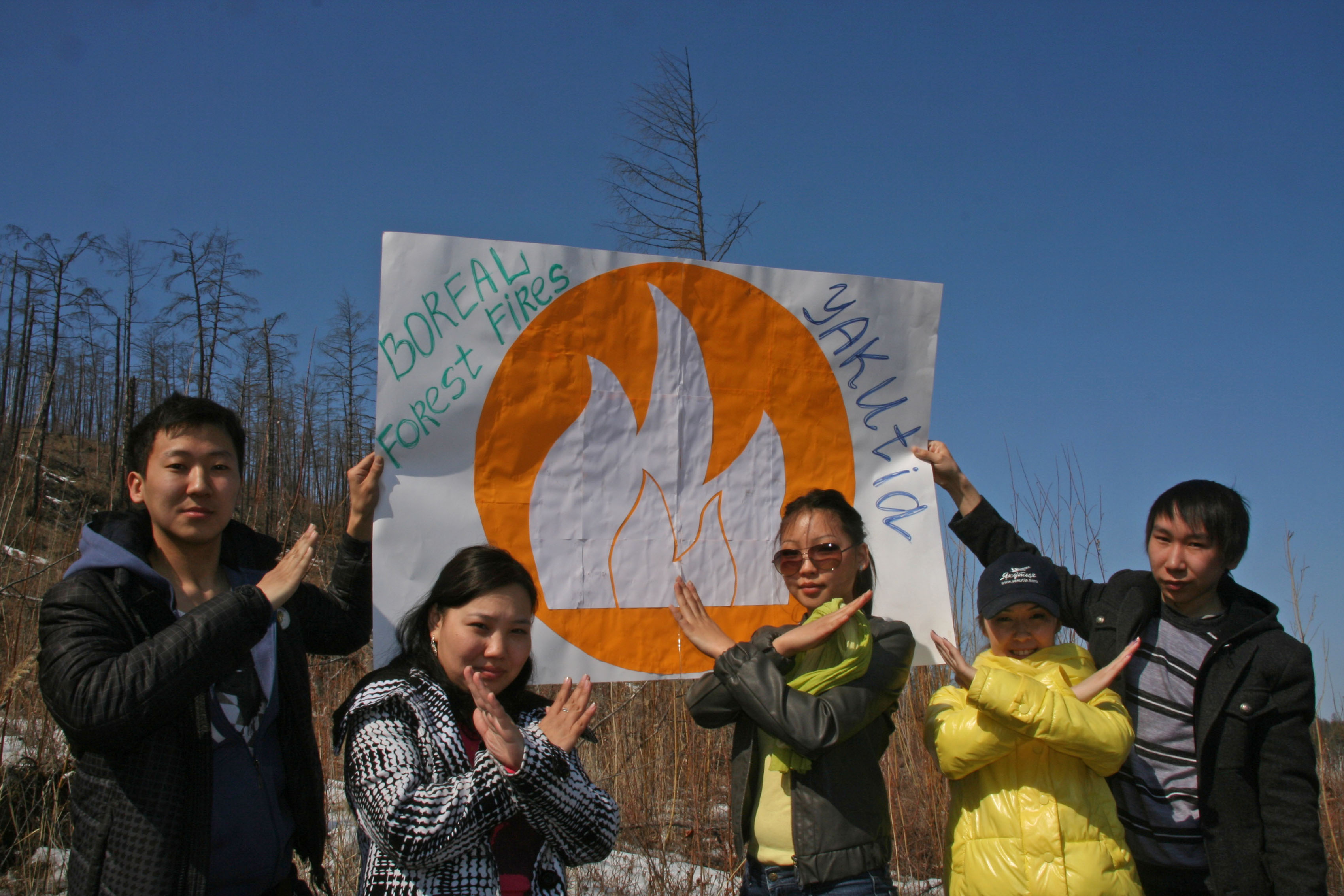
This photo was taken by Ekaterina and her group in what used to be a forest near Yakuts – a capital city of Sakha Republic (Russian Federation). Almost all the territory of Yakutia is covered by taiga forests, a.k.a boreal forests. Taiga is the largest terrestrial ecosystem on Earth and it plays crucial role in peoples lives in Siberia, Canada, Alaska, Scandinavian countries, and in climate balance as well. Nowadays, these woods are endangered by massive logging, fires and invasive insects spreading as temperature growths. This particular forest in Yakutia prospered until a few years ago, when it was destroyed by forest fires and subsequent insect outbreaks. The republic also suffers from permafrost melting that causes building and infrastructure losses.
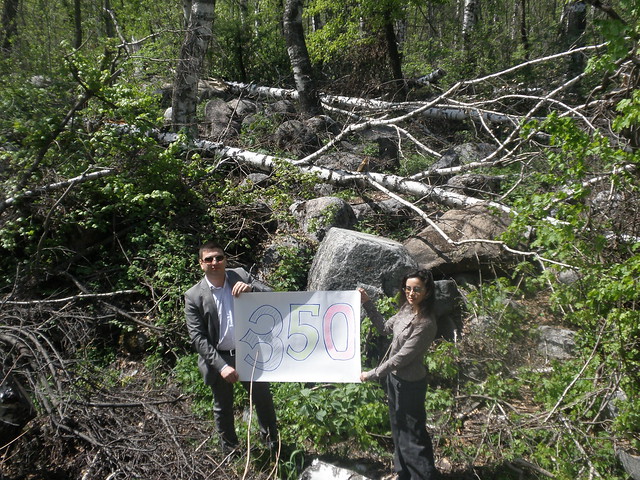
Forests in Kazakhstan are also effected by changing climate. Azizhan, who have initiated an Eco-Patrol group to gather different consequences of environmental crisis in his country, also made a photo together with his friend in a place effected by last year hurricane. “It’s an anomaly for our region”, he says showing huge areas of trees teared up by the roots near Almaty.
In Kyrgyzstan and Tajikistan, there is a huge threat to water reserves – the whole region relies heavily on water coming from mountain glaciers. As temperature rises the ice melts faster causing floods today and leaving no water for tomorrow. As it hardly can be mitigated people in Central Asia have to adapt to the new reality where traditional way of living can become impossible.
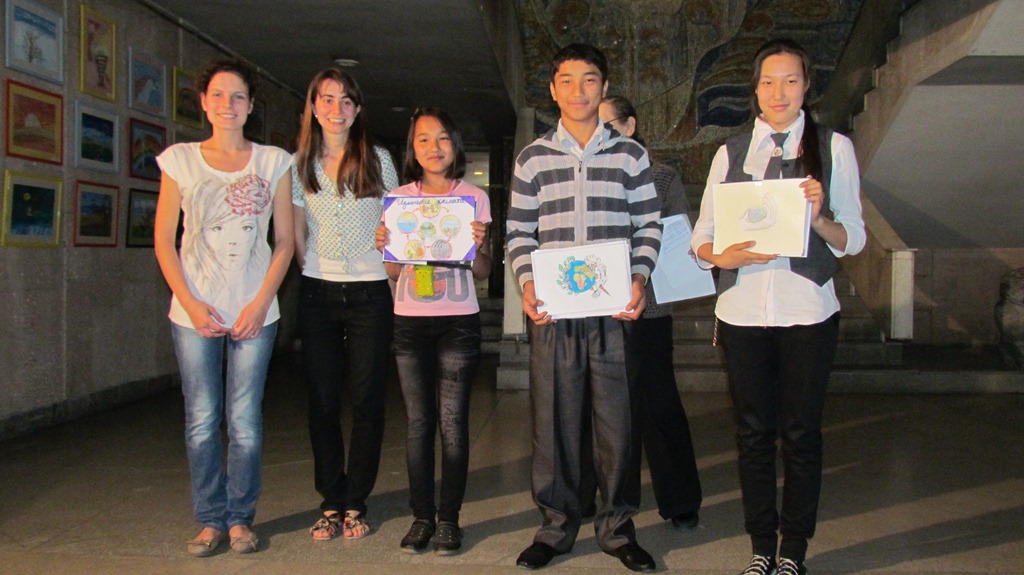
Nurgul from Civic Foundation UNSION together with Youth Organization Movegreen held children drawing contest following by photo exhibition in Bishkek, Kyrgyzstan. The contest winners got the ‘End of Nature’ book by Bill McKibben. ‘We are already feeling the climate change impacts that lead to economic and even human loses’, says Nurgul. ‘So we need to teach people from childhood how to live in this world and how to solve these problems’.
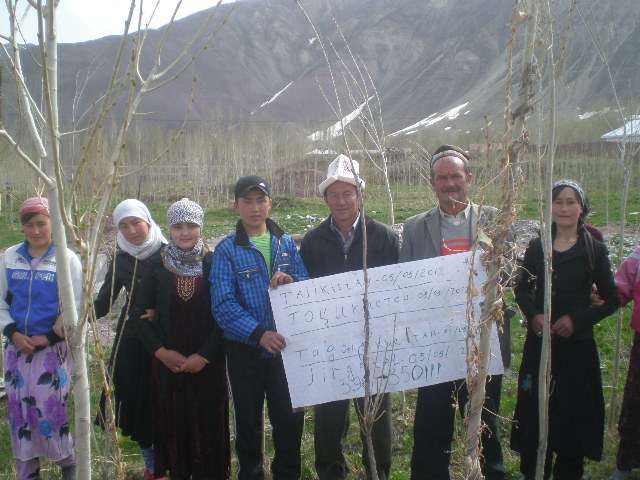
Next photo came from a small mountain village Sary Kendzha Rasht region of Tajikistan. There and in 4 nearest villages Kurbonali and his colleagues organized a series of discussion on climate adaptation for local farmers, women and youth. With the changing climate local communities have to find new ways of growing food, protecting health and biodiversity.
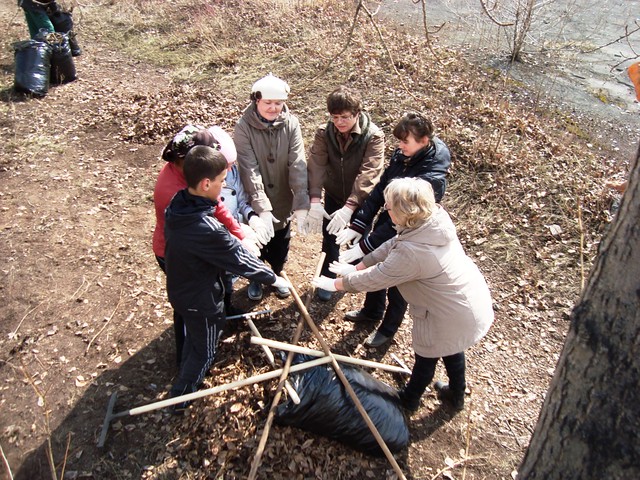
And in another city in Russia – Bratsk, Natalia with her team and children are raising awareness about city parks. The parks, laid out 55 year ago, are now neglected. With a slogan ‘Or city is a living organism!’ the activists cleaned up a park and sent a message to the whole community.
Much more actions are on their way, Connecting the Dots between climate change and people in Central Asia, Caucasus and Eastern Europe. And while the crisis evidence is alarming, the hope for a better world is also growing!
Running to participate in a Coal Dot flash-mob in Kyiv, Ukraine in an hour!
Yuliya